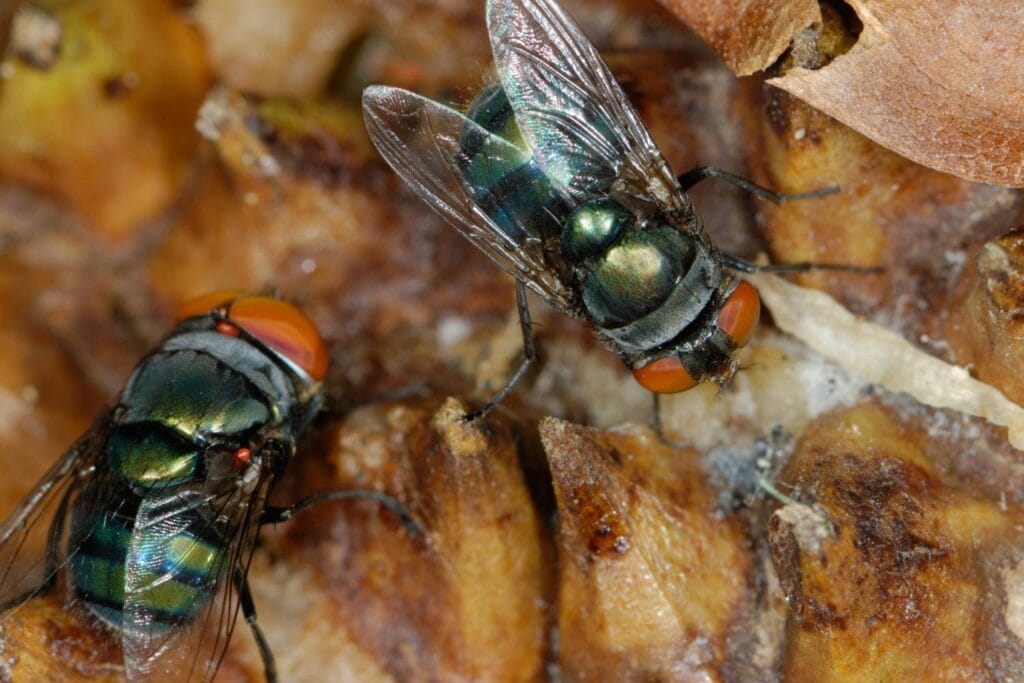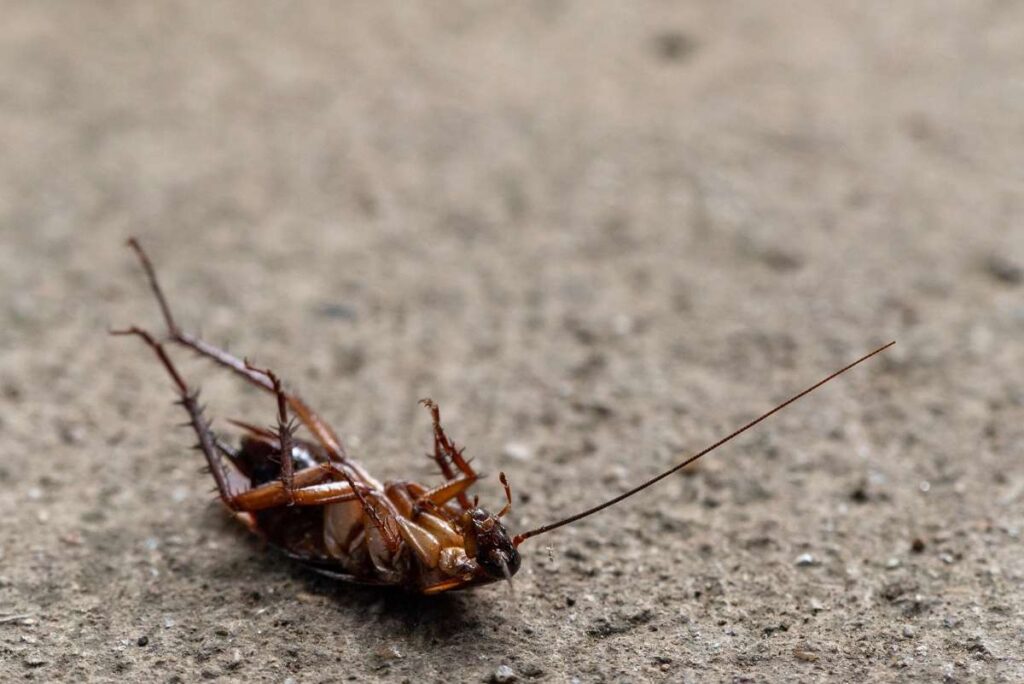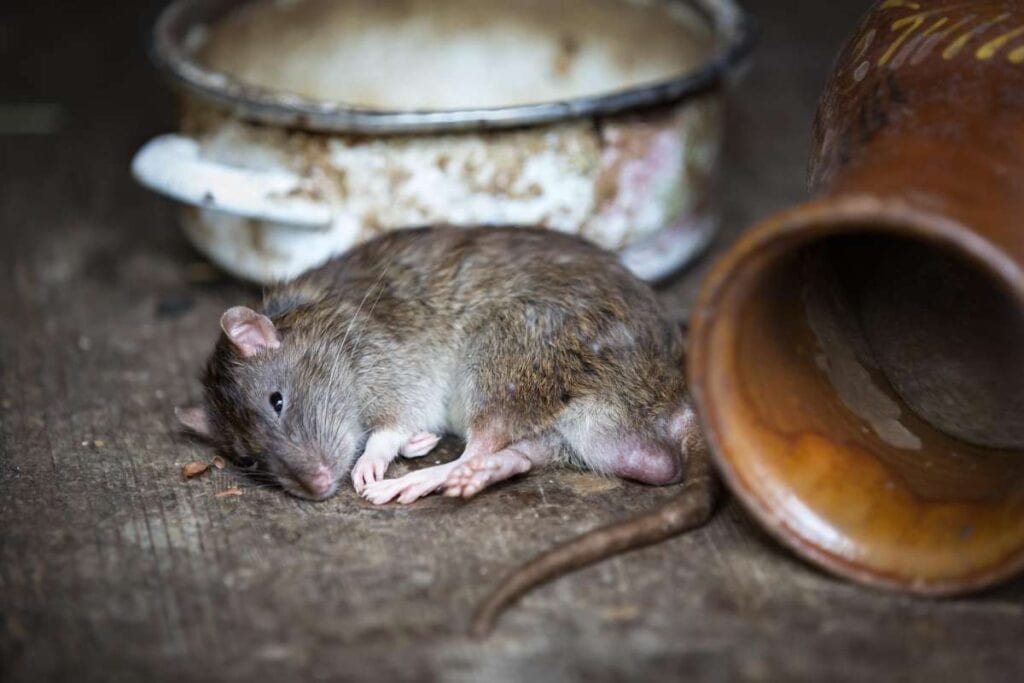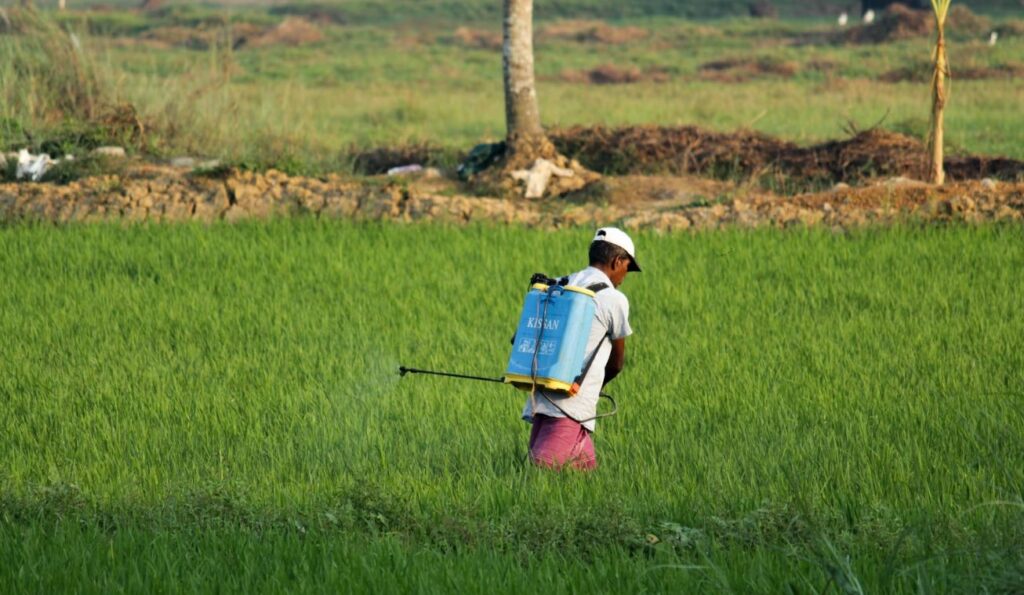As one of the most persistent pests in a home, fruit flies are a common problem. In the absence of appropriate therapy, you will observe them returning on multiple occasions.
The presence of overripe fruit and water that has become stagnant in drains, gutters, or other places where water may gather attracts fruit flies. As a result of the abundance of fruit trees in certain places, these pests are present virtually throughout the year.
This blog will explain what fruit flies are, what causes them to attract fruit flies, and how to eliminate them.
What Are Fruit Flies, And What Causes Them In The Home?
The eyes of fruit flies are red, and they are brownish. Fruit flies are very small flying insects. The kitchen is a common place to spot fruit flies because they feed on decaying or wet produce. To begin, avoid inviting fruit flies into your home by regularly checking on any fruit you leave out on the counter.
Therefore, if you see one or two buzzing around, you should immediately attempt to solve the situation. They multiply rapidly and effectively, and they are capable of producing offspring as early as two days after they have reached adulthood.
Fruit flies are drawn to spoiled fruits and vegetables because they provide the perfect reproduction environment. Yeast found in fruit sugars is a favourite food of theirs. Fermentation of sugar occurs in ripening or decaying fruits. Bananas, in particular, are a potential entry point for fruit fly eggs into your home.
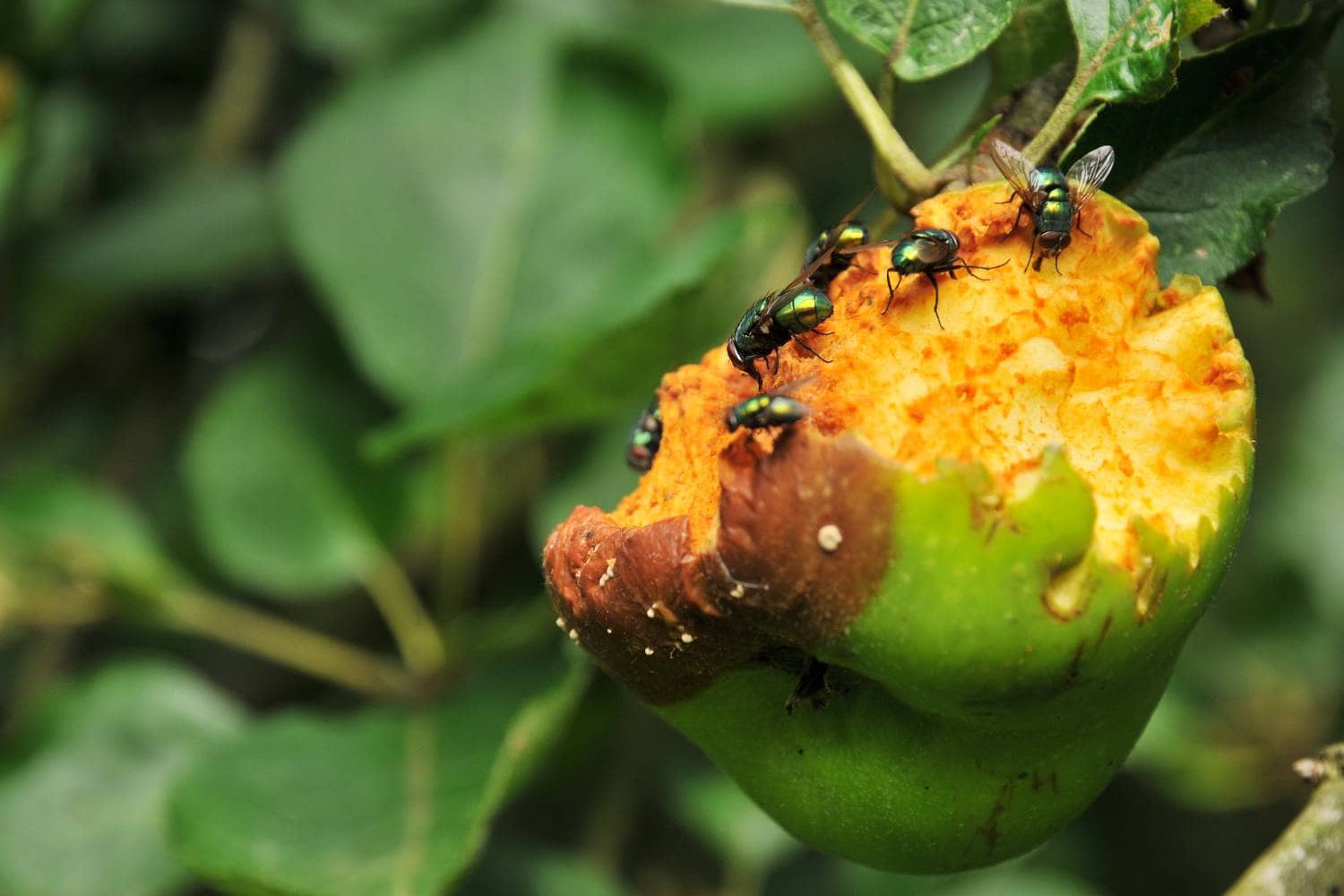
What Attracts Fruit Flies?
Fruit flies are typically found close to overripe, ripe, or decaying fruit, where their name comes from. Any substance that is during the fermentation process has the potential to attract fruit flies.
The two most significant sources of fruit flies are fruit bowls and fruit trees located in or close to your residence.
Bowls of fruit: When you leave a bowl of either overripe or decaying out in the open, it becomes an ideal food source for fruit flies. These pests will undoubtedly discover your afternoon munchies if you do not provide adequate protection, such as a towel or plastic film protection. There is, however, a risk-free solution that involves putting fruit in the refrigerator.
As a result of the enclosed atmosphere and the lower temperatures, fruit flies can't live in this setting. Refrigerating your fruit not only helps preserve its freshness for a longer period of time but also eliminates the possibility of attracting fruit flies, so ensure that your kitchen and house remain clear of pesky insects.
Fruit trees: Preserving the health and productivity of fruit trees requires consistent attention to groundskeeping practices. This includes picking up and throwing away any spoiled or fallen fruit from the tree and being aware that this stuff might lure in big and tiny pests.
Quickly picking up fallen fruit helps keep your fruit trees healthy and pest-free while making the area around them more pleasant. Keeping the area surrounding your fruit trees neat makes them seem better and helps your garden or orchard stay healthy.
Ways For Removing Fruit Flies
Once you become aware of fruit flies in your home, you can eliminate them by employing these strategies.
Buy A Fruit Fly Trap.
Consider purchasing an already-constructed trap rather than attempting to construct one alone. When looking for an effective choice, sticky traps—which can be easily bought in stores and online—stand out. When fruit flies land on these strips, they get entangled in the adhesive because of the bright colours. This method effectively eliminates fruit fly infestations while saving time and effort.
Remove Fruit Fly By AttractantsThem.
Before discussing fruit fly traps, we must go to the root of the problem. It is essential to understand that fruit flies in the house do not indicate that your home is unclean. They are drawn to everything that is on the sweet side.
Fruit flies are frequently found in fruit as their food source. Does your stovetop or the area under your refrigerator have any sweet messes? Inspect these places and eliminate any scent of sweetness that could attract fruit flies using bleach and water solution or bleach wipes.
Additionally, inspecting the area surrounding the trash can, dishcloths, mops, and any other items you might wait to think could attract fruit flies immediately. In addition, they can use these surfaces to deposit their eggs. Therefore, it's important to clean them frequently.
Make Use Of Chemical Bug Spray.
It is important to prioritise natural remedies when dealing with insect problems, especially in areas where food is handled, such as your kitchen. However, chemical bug sprays are an option when an infestation gets out of hand. For quick and easy fruit fly control, use a pest control spray.
Reducing the frequency and severity of chemical spraying is possible through proactive problem-solving, which is safer and more environmentally friendly. Quick action is required to prevent the aggravation of repeated infestations, and strategies that uphold cleanliness and ecological balance should be given precedence. The key to effectively controlling pest infestations is balancing effectiveness and eco-consciousness.
Utilise A Paper Cone
Another one of those do-it-yourself fruit fly traps that use items you already have lying around the house. An assortment of items such as paper, ripe fruit, a jar, and a small amount of vinegar are required for this technique.
After putting the fruit in the jar, all you have to do is add vinegar. Any residual fruit flies in your home will find this enticing. Next, roll the sheet of paper into a cone shape. Insert the narrow end into the opening of the jar. Like in an apple cider vinegar trap, the flies will get inside the jar but won't get out.
Ways To Avoid Fruit Flies
Simple adjustments to your way of life and improvements to your property will help keep fruit flies out of your home.
Keep Your Trash Sealed
Food waste is one of the most common places where fruit flies can be seen reproducing. This is where they make their home, where they mate, and where they lay their eggs. It would be best if you cleaned the inside of the trash can regularly and put out the trash regularly. Liquids may seep from the bag into the bottom of the can, where they will remain for several weeks, ferment, and generate fruit flies.
Keep Doors And Windows Closed.
Flies that feed on fruit are so small that they can fit through even the smallest holes, such as those found in windows and doors. Close all doors and windows as much as possible to prevent their entry. This easy measure will help keep fruit flies out of your house or business by creating a stronger defence against these tenacious pests.
Properly Store Fruit.
People call them "fruit flies" for a good reason. The best way to attract these pests is to not hide ripe fruits, such as bananas, from them. Keep fruit flies in the refrigerator's humidity-controlled area to prevent fruit flies from attacking your fruit.
After you've enjoyed your fruit, throw away any leftovers in your dumpster immediately. This preventative step lets you keep your kitchen and home free of fruit fly infestations and other unpleasant pests.
Fix Plumbing Leaks.
Fruit flies are attracted to any area with moisture, whether from a leak in the plumbing or a spilt meal. Inspect the space under kitchen sinks and around bathroom fixtures regularly for indications of undesired moisture.
As soon as you notice any signs of moisture, you must find out where it's coming from and fix the problem immediately. A dry, sanitary living place is advantageous to overall hygiene and well-being, and you may easily prevent fruit fly infestations by quickly fixing leaks and eliminating damp conditions.
Dispose Of Trash Every Night
Maintaining cleanliness and warding off fruit flies can be achieved by making it a nightly habit to take out the trash. As it breaks down, garbage attracts these unwanted guests. The accumulation of decaying waste that attracts fruit flies can be prevented by regularly disposing of garbage.
A hygienic environment that helps prevent fruit fly infestations can be maintained by implementing this straightforward yet efficient method.
Control The Humidity Inside
Keeping the relative humidity in the house low is important to prevent fruits from spoiling too quickly. It is possible to maintain an ideal indoor humidity level with the help of devices like air conditioners and dehumidifiers.
Humidity control has two benefits: it makes fruits last longer in the fridge and less attractive to fruit flies, which can lead to infestations. Taking this preventative precaution helps to create a living environment that is both healthier and more hygienic.
Before Throwing Out, Rinse Food Containers.
Fermenting drinks, such as old soda and alcohol, attract fruit flies. Water is another common attraction. You may keep these pests at bay by cleaning your used food containers, bottles, and cans well before recycling or throwing them away.
If you want to keep fruit flies at bay, you must keep your trash can clean and dry. By following these steps, you may make your home more sanitary and less likely to be invaded by fruit flies, which is good for your health in general.
Clean Up Dishes Immediately
Fruit flies will swarm on unwashed dishes because they provide a source of both food and moisture. Be sure to wash the dishes as soon as possible. After cleaning the kitchen, you may find food particles stuck in your sponge, dishcloth, brush, or mop. Fruit flies will find your sticky cleaning equipment if you leave it out. You should instead put the goods in the washing machine or the dishwasher.
Regout Kitchen Tiles
Having either old or broken tiling provides a problem since it can harbour moisture, which creates places for fruit flies to reproduce behind wall tiles or under floor tiles that have been damaged. You can avoid this by looking for damaged or warped tiles.
Remove any concealed pockets of moisture by replacing and regrouting the problematic tiles as soon as they are discovered. Improve the look of your area and make it less inviting to fruit flies by fixing damaged tiles as soon as possible. This will keep your space dry and sanitary, which is good for your health.
Immediately Clean Areas Used For Preparing Food
It only takes a short time for fruit flies to locate even the tiniest bit of fruit or drop of wine. One way to keep pests at bay after cooking or serving food is to clean up immediately and thoroughly. This includes the countertops, small appliances, tables, and dishes.
Keeping the garbage disposal and the sink in the kitchen clean is an important task. The drains might become clogged with bits of food. After every use in the kitchen, thoroughly clean and flush the drains and disposals.
Do you know whether mould tempts flies? Fruit flies are attracted to damp, decaying food stored in storage areas. Regularly clear up and organise your storage areas. Prevent pests like fruit flies by storing food in airtight plastic containers.
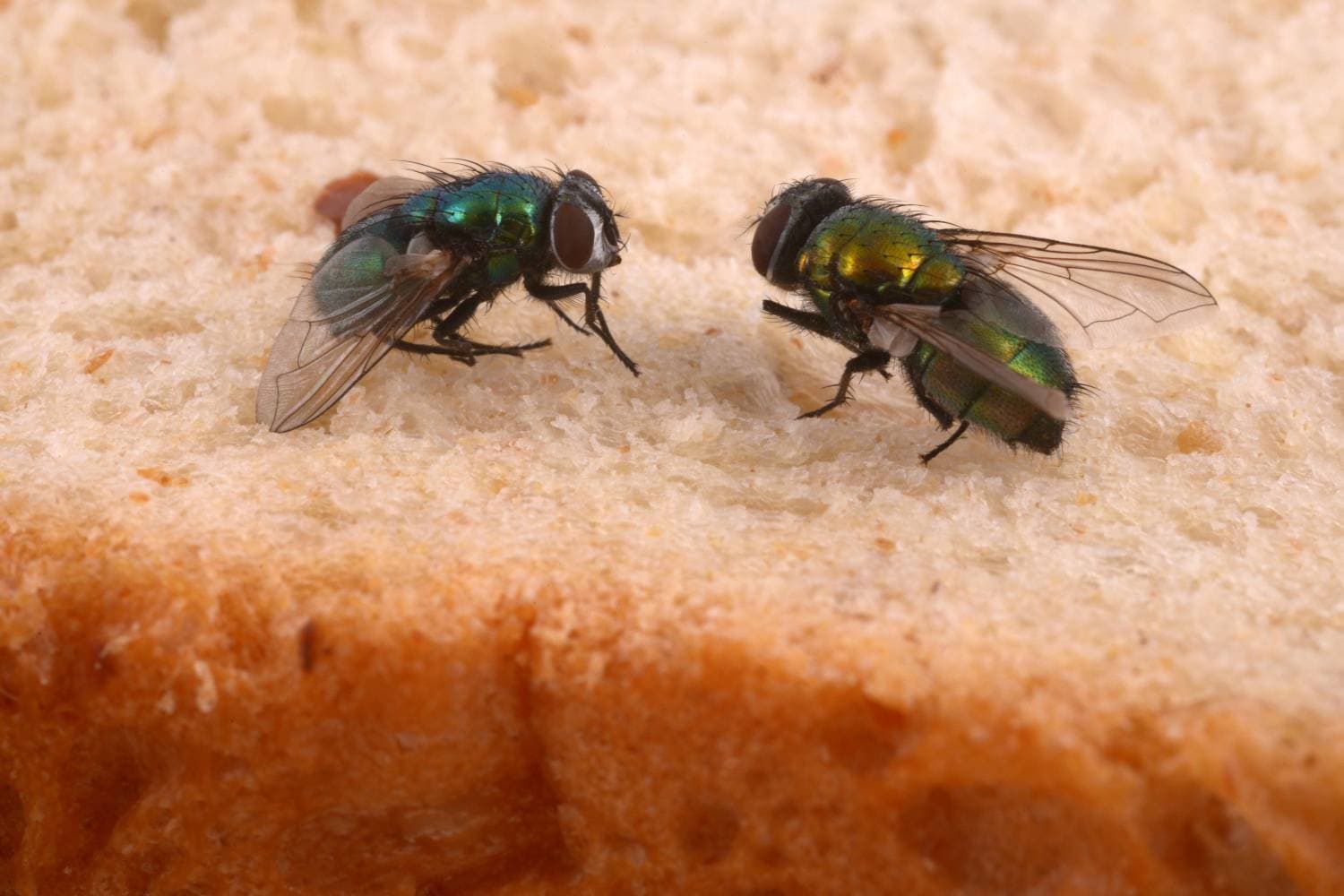
Pay Attention To Your Trash Can
The summer is peak fruit fly season because of the abundance of fresh produce and the extreme heat and humidity. However, fruit fly outbreaks can happen at any time of year. If you like to eat and throw a lot out, dump the trash can twice daily into an outdoor container to keep fruit flies at bay.
In addition, to maintain the garbage can's cleanliness, you should wash it three times a week with water and either dish soap or an all-purpose cleaner. This method eliminates the potential breeding ground for fruit flies by eliminating bottom seepage and stickiness. Following these steps, you can keep things clean and reduce the likelihood of fruit fly infestations.
Conclusion
Fruit flies are a common pest in homes, often found in overripe fruit and stagnant water in drains, gutters, or other areas. They are small flying insects that feed on decaying or wet produce, particularly yeast found in fruit sugars. Fruit flies are drawn to spoiled fruits and vegetables, which provide the perfect reproduction environment. The two most significant sources of fruit flies are fruit bowls and fruit trees located in or close to your home.
To eliminate fruit flies, consider purchasing an already-constructed trap, such as sticky traps, or using natural remedies like bleach and water solution or bleach wipes. Inspect the area surrounding trash cans, dishcloths, and mops regularly to remove any scents that could attract fruit flies.
If chemical bug sprays are necessary, prioritise them over natural remedies, as they are safer and more environmentally friendly. Proactive problem-solving is crucial to prevent repeated infestations and maintain cleanliness and ecological balance.
Another do-it-yourself fruit fly trap involves using paper, ripe fruit, a jar, and vinegar. Roll the sheet of paper into a cone shape and insert the narrow end into the opening of the jar, creating a trap that flies cannot escape.
In summary, fruit flies are a persistent pest in homes, often found in overripe fruit and stagnant water. To control them, follow these strategies: buy a fruit fly trap, use natural remedies, and use a paper cone.
Content Summary
- Fruit flies are persistent pests commonly found in homes, requiring appropriate measures for control.
- Without proper treatment, fruit flies can reappear on multiple occasions.
- Stagnant water in drains, gutters, and other places attracts fruit flies, especially near overripe fruit.
- Fruit flies thrive in areas with an abundance of fruit trees, making them present throughout the year.
- Fruit flies have red eyes and a brownish appearance, being small flying insects.
- The kitchen is a common spot for fruit flies, as they feed on decaying or wet produce.
- Fruit flies can multiply rapidly, producing offspring as early as two days after reaching adulthood.
- Spoiled fruits and vegetables provide an ideal reproduction environment for fruit flies due to the yeast in fruit sugars.
- Ripening or decaying fruits, particularly bananas, can be potential entry points for fruit fly eggs into homes.
- Fruit flies are drawn to substances undergoing fermentation during the process, not just fruits.
- Fruit bowls and fruit trees near residences are significant sources of fruit flies.
- Leaving overripe or decaying fruit in open bowls attracts fruit flies, necessitating protective measures.
- Refrigerating fruit helps preserve freshness and eliminates the possibility of attracting fruit flies.
- Consistent attention to groundskeeping practices is crucial for preserving the health of fruit trees and preventing fruit fly attraction.
- Buying pre-constructed sticky traps is an effective option for eliminating fruit fly infestations.
- Fruit fly traps can be easily bought in stores and online, saving time and effort.
- Fruit flies are attracted to sweet substances, not necessarily indicating an unclean home.
- Inspecting and cleaning areas with sweet messes, like stovetops and under refrigerators, helps prevent fruit fly attraction.
- Chemical bug sprays can be used for quick fruit fly control when natural remedies are insufficient.
- Proactive problem-solving and eco-conscious strategies are important for reducing chemical spraying frequency.
- DIY fruit fly traps, like the paper cone method, use common household items to attract and trap flies.
- Sealing trash prevents fruit fly reproduction, as food waste is a common breeding ground.
- Closing doors and windows helps prevent fruit flies from entering homes through small openings.
- Properly storing ripe fruits in the refrigerator prevents fruit fly infestations.
- Fixing plumbing leaks and eliminating moisture helps prevent fruit fly attraction to damp areas.
- Disposing of trash every night prevents the accumulation of decaying waste that attracts fruit flies.
- Controlling indoor humidity prevents fruits from spoiling quickly and attracts fewer fruit flies.
- Rinsing food containers before disposal prevents fermenting drinks and water from attracting fruit flies.
- Cleaning dishes immediately and washing cleaning equipment prevents fruit flies from swarming on unwashed items.
- Regrouting kitchen tiles and fixing damaged tiles prevent moisture accumulation and fruit fly reproduction.
- Cleaning areas used for preparing food immediately helps keep fruit flies at bay after cooking.
- Keeping garbage disposals and sinks clean prevents fruit fly attraction to damp, decaying food in drains.
- Mould tempts flies, so regularly cleaning and organising storage areas prevents fruit fly infestations.
- Paying attention to trash cans by emptying them twice daily and washing them three times a week helps prevent fruit fly outbreaks.
- Summer is peak fruit fly season due to fresh produce and heat, requiring increased attention to trash maintenance.
- Washing trash cans eliminates potential breeding grounds for fruit flies by eliminating bottom seepage and stickiness.
Frequently Asked Questions
Yes, fruit flies can be effectively managed through non-chemical approaches, emphasising cleanliness, sanitation, and do-it-yourself (DIY) traps. These strategies target the root of the problem by eradicating breeding grounds and enticing and capturing fruit flies without resorting to chemical pesticides.
You eliminate attractive breeding sites by maintaining a clean environment and disposing of ripe or decaying fruits and vegetables. DIY traps, often made with common household items like vinegar or ripe fruits, lure fruit flies and prevent their reproduction. This eco-friendly approach controls infestations and fosters a safer and healthier living space.
Fruit flies primarily target ripened or decaying fruits and vegetables, making them less likely to cause direct damage to plants. However, heavy infestations can damage fruit and reduce crop yields in agricultural settings.
While fruit flies are not known to transmit diseases to humans, they can carry bacteria and pathogens on their bodies, potentially contaminating food and surfaces. Proper food handling and sanitation practices are essential to minimise health risks associated with fruit fly infestations.
If persistent fruit fly issues persist despite your best efforts, it's advisable to enlist the expertise of pest control professionals. These specialists possess the knowledge and resources to assess the situation thoroughly, pinpointing underlying causes contributing to the infestation. They can develop tailored control strategies to eradicate fruit fly infestations effectively through their expertise.
Whether it involves identifying hidden breeding sites, implementing advanced trapping techniques, or recommending environmental modifications, pest control professionals offer comprehensive solutions to address even the most challenging fruit fly problems. Their intervention ensures a swift and sustainable resolution to the issue, restoring peace and cleanliness to your environment.
Depending on your location and the severity of fruit fly infestations, there may be regulations and guidelines provided by local health departments or agricultural authorities. These regulations may include recommendations for control methods and reporting requirements for significant infestations.

